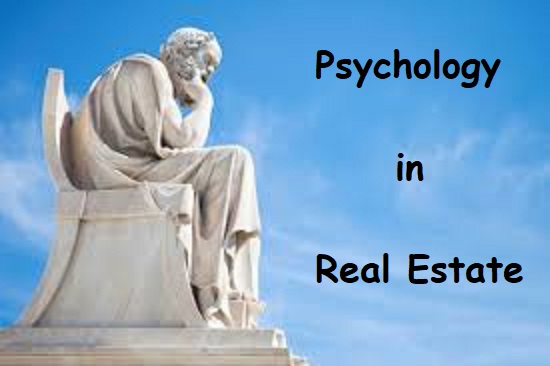Psychology in real estate is a fascinating intersection where the understanding of human behaviour, emotions, and decision-making processes plays a pivotal role in shaping the dynamics of buying, selling, and investing in property.
From the initial stages of property search to the final stages of negotiation and closing, psychological factors influence every aspect of the real estate transaction, impacting both buyers and sellers alike.
One of the key psychological aspects in real estate is the concept of perception and how it shapes buyers’ and sellers’ attitudes towards properties. Perception encompasses factors such as aesthetic appeal, neighborhood reputation, and emotional resonance with a property.
Sellers leverage this by staging homes to create a favorable impression, while buyers may be drawn to properties that evoke positive emotions or align with their aspirations.
Moreover, emotions play a significant role in real estate transactions. For buyers, the decision to purchase a home is often driven by a complex interplay of emotions, ranging from excitement and anticipation to anxiety and apprehension.
Sellers, on the other hand, may experience a mix of emotions, including attachment to their property and the desire for a profitable sale. Understanding and managing these emotions is crucial for real estate agents in facilitating successful transactions and maintaining client satisfaction.
Additionally, cognitive biases influence decision-making in real estate. Anchoring bias, for example, occurs when individuals fixate on a specific piece of information, such as the listing price, and use it as a reference point for evaluating other aspects of the property.
Confirmation bias leads individuals to seek out information that confirms their preconceived beliefs about a property while ignoring contradictory evidence. By recognizing and addressing these biases, real estate professionals can help clients make more informed decisions and avoid potential pitfalls.
Social dynamics also play a significant role in real estate transactions. The concept of social proof suggests that individuals are more likely to follow the actions of others, particularly in uncertain situations.
Positive reviews, testimonials, and word-of-mouth recommendations can significantly influence buyers’ perceptions of a property and increase their confidence in making a purchase decision.
Similarly, the presence of competing offers can create a sense of urgency among buyers, leading to higher sale prices and faster transactions.
Furthermore, environmental psychology examines how the physical environment impacts human behavior and well-being, which is relevant in real estate.
Factors such as natural light, layout, and proximity to amenities can affect the perceived value of a property and influence buyers’ preferences.
By incorporating principles of environmental psychology into property design and marketing strategies, real estate professionals can enhance the appeal and marketability of listings.
In conclusion, psychology plays a multifaceted role in real estate, influencing everything from perception and emotion to decision-making and social dynamics.
By understanding these psychological principles and their implications for buyers and sellers, real estate professionals can navigate the complexities of the market more effectively, foster positive client relationships, and ultimately achieve successful outcomes for all parties involved.

